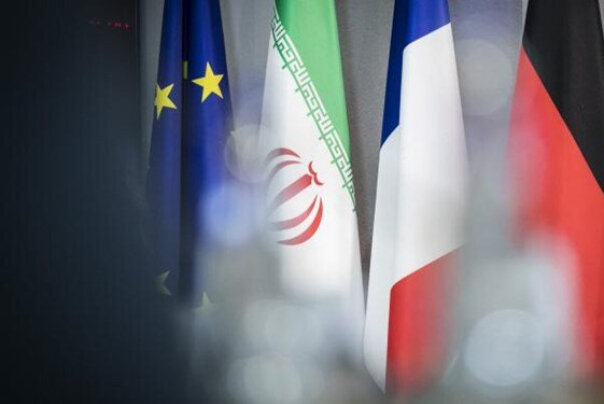TEHRAN — Western media is rambling on and on about Iran not viewing the proposed draft by the European Union positively, but is that really the case?
Writing an article in Financial Times on Tuesday, Josep Borrell, the European Union high representative for foreign affairs and security policy, said he has put forward a draft of the JCPOA revival negotiations.
“After 15 months of intense, constructive negotiations in Vienna and countless interactions with the JCPOA participants and the U.S., I have concluded that the space for additional significant compromises has been exhausted. I have now put on the table a text that addresses, in precise detail, the sanctions lifting as well as the nuclear steps needed to restore the JCPOA,” Borrell wrote.
According to Borrell, the text offers “the determination of all JCPOA participants to ensure its sustainability, including the commitment of President Joe Biden and U.S. assurances in this regard.”
As a result, Borrell came to the conclusion that the deal is “better protected from potential unilateral moves to undermine it.”
Although the EU-proposed draft has not yet been made public to the media, the Western media and the usual suspects are going on and on about Iran not agreeing to the draft.
A senior Israeli diplomatic source, speaking on the condition of anonymity, told Al-Monitor that the U.S. Special Envoy for Iran Robert Malley recently told Israel that he believes the Iranians will reject Borrell's proposed text. Malley's stated opinion reflected that of Biden's Middle East adviser Brett McGurk, who told a gathering of think tank analysts last week that the reinstatement of the nuclear deal is "highly unlikely."
Meanwhile, Al-Monitor claimed it has discovered that the Mossad intelligence agency is operating under the assumption that a deal would be achieved.
According to Ali Vaez, Iran project director at the International Crisis Group, the EU proposal misses the mark of Iran's aspirations and is unlikely to overcome the remaining gaps between the two countries.
"It's difficult to imagine any type of mutually acceptable formula being reached at this point," Vaez remarked.
"Although the sides are unwilling to say that the discussions have failed, I don't believe there is a route ahead," he said, adding that "I'm almost convinced that Iran would reject the amended proposal."
It is not too difficult to understand how Vaez came to such a conclusion without seeing a text. As one of the architects of the JCPOA text, he knows very well that the deal does not address Iran’s concerns regarding economic assurances, and it will not also provide a mechanism for International Atomic Energy Agency director general, whoever he/she may be, to close all Iran files.
In line with the spectrum of spreading doubts over the deal, a European Union diplomat told Laura Rozen, a prominent American reporter on Thursday, “We are trying to bridge remaining differences through all possible means, but no progress so far.”
The “Iranians are stuck or are pushing on several unrealistic asks--including ‘we will not return to JCPOA until [IAEA Director General Rafael] Grossi closes all files,’” another official with one of the European parties to the nuclear pact said. “Everyone is looking elsewhere, but this summer is when things start going downhill.”
Vaez also shared his intellect with Rozen, saying, “To my understanding, the proposal contains slight revisions, and does not contain any substantive concessions from either side. And so, I'm almost certain that it will fall short of Iran's expectations.”
“If the Iranians were looking for a face-saving way out, the proposal would meet that criteria,” Vaez said.
“But I don't think that's the case. So unfortunately, I don't think this last ditch effort is going to salvage the JCPOA.”
Maybe, if we look at the U.S. State Department spokesperson’s Thursday briefing, we may get a better understanding of what the EU-proposed draft offers.
“It is our understanding that the proposal that Mr. Borrell put forward was based on the deal that has been on the table, that was painstakingly negotiated…that we have been prepared to accept since March,” Ned Price told journalists at the State Department on Thursday.
“We have not been the cause of that (stalemate). There has been one country that has prevented a return to compliance with the JCPOA. That is Iran,” Price continued, following a trend of public accusations against Iran in the media.
The Elysee Palace stated on Thursday that there was still time to rescue the JCPOA, but it also stated that the ball is now in Tehran's court.
In this regard, Price told the press, “We’ve been in touch with our European allies. We continue to remain in close contact with our P5+1 partners in this regard, including, of course, our European allies in this. We are reviewing the draft understanding. We plan to do so swiftly. We’ll share any reactions we have with the EU directly.”
Price also stated that Washington was exploring all contingencies in the event that a deal to resurrect the 2015 pact could not be reached.
Iranian Foreign Minister Hossein Amir Abdollahian and other Iranian officials responded favorably to Borrell's idea right away.
During a phone conversation on Wednesday evening, a day after Borrell offered a new silver lining, Amir Abdollahian welcomed the continuation of diplomacy, thanking Borrell and his deputy Enrique Mora for their efforts.
The Iranian foreign minister said the U.S. has always claimed that it wants a deal, so this must exist in the wording of the agreement and also in practice.
The JCPOA needs to be saved, but not at any cost. In the event of a mutual return to the 2015 nuclear deal, there is a big if. What if the IAEA continues the trend of baselessly accusing Iran over non-existent so-called “concerns”?
The deal on the table must ensure that the IAEA will close all the Iran files.


No comments:
Post a Comment